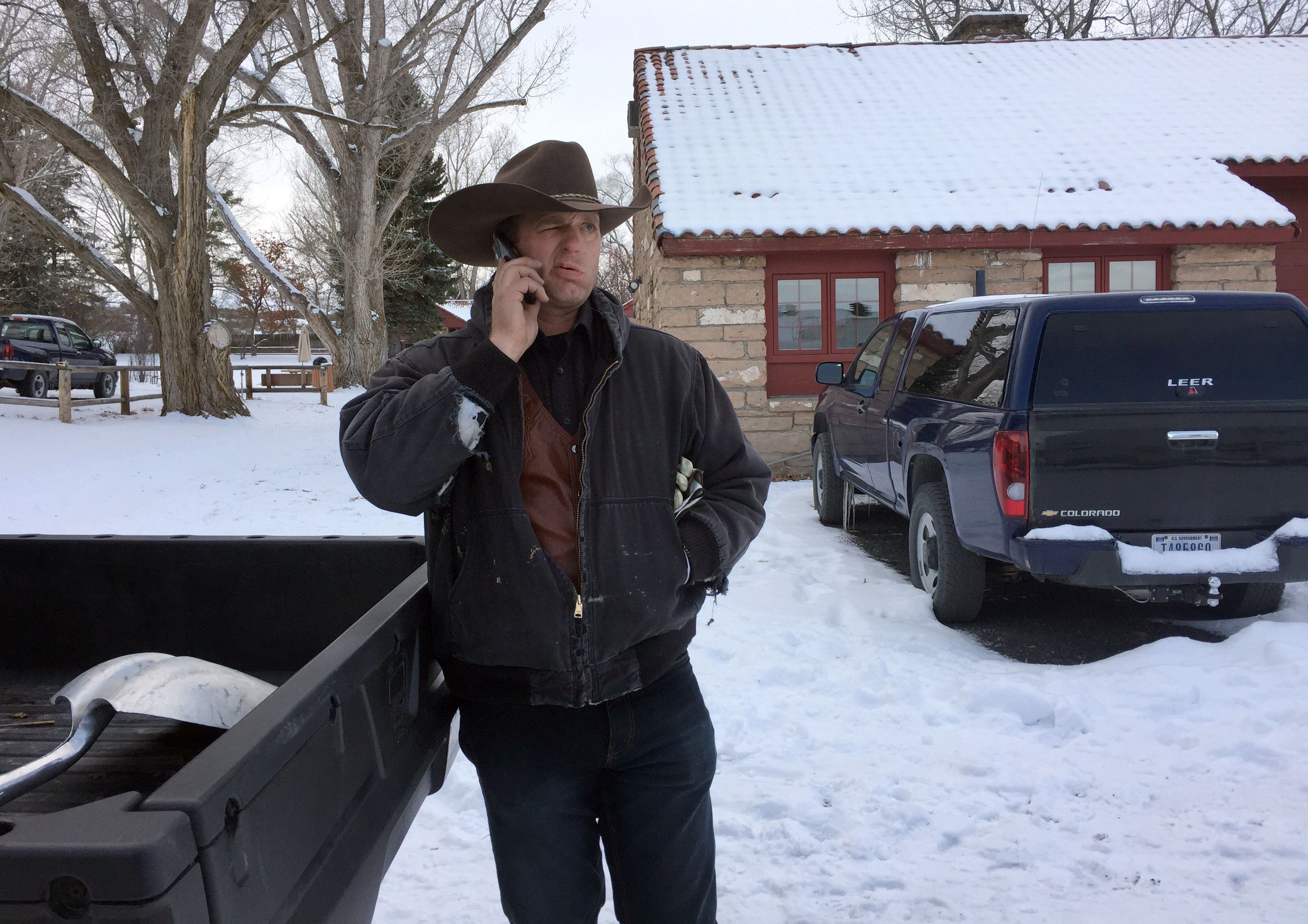
What led a militia to take over a federal building in Oregon? Behind the tense standoff is a legitimate protest over a troubling law — specifically, a very harsh mandatory minimum sentence.
The building takeover began after armed men broke off from a peaceful march over prison sentences given to two local ranchers, Dwight and Steven Hammond. The dad and son have been sentenced to five years in prison for starting fires in 2001 and 2006 — supposedly to kill invasive species and protect their ranch — that damaged public land. No one was hurt as a result of the fires, but federal law required a judge to give the ranchers at least a five-year sentence anyway.
If the mandatory minimum seems harsh to you, you’re not alone. The judge in the case argued that it’s too much. And whatever one thinks about the merits of taking over a federal building with the threat of gun violence (the Hammonds, for their part, have distanced themselves from the building takeover), the sentence is leading to yet another look at the problem with mandatory minimums.
The Hammonds were sentenced to five years in prison for starting a fire that didn’t injure anyone

Associated Press Ryan Bundy, a militia member, talks on the phone at the Malheur National Wildlife Refuge in Oregon.
To understand how we got to this point, it’s important to first understand some of the backstory with the Hammonds. (Much of the following timeline is based on Les Zaitz’s great reporting for the Oregonian.)
In 2001, the pair started a fire on their land to, they said, destroy invasive plants. But federal prosecutors argued that the Hammonds started the fire on federal property with a different motive: to cover up illegal deer killing. Whatever the reason, the fire spread to public land, burning 139 acres of public land and forestalling grazing for two seasons.
In 2006, the Hammonds started another fire, one that the government acknowledged was a defensive move — to stop a lightning-caused fire from spreading to the pair’s ranch. But prosecutors argued that the fire violated a countywide burn ban and was started despite knowledge of nearby part-time firefighters who could be harmed by another fire.
The fires didn’t injure anyone, but they did damage federal property, a violation of federal law. (As Vox’s Jennifer Williams explained, the militia members and protesters in Oregon don’t necessarily agree that this should be federal property — they would rather see it in the hands of local ranchers, loggers, and miners.)
The men were convicted and sentenced for federal arson in 2012, under the federal Antiterrorism and Effective Death Penalty Act of 1996 that, despite its name, also defines how the government deals with arson cases on federal property.
The law requires that those convicted for arson of federal property receive a five-year mandatory minimum sentence. But US District Judge Michael Hogan said this was too harsh, violating Eighth Amendment protections against cruel and unusual punishment. So he sentenced Dwight to three months in prison and Steve to a year, sentences that both men served.
In a rare move, federal prosecutors appealed the sentence. The US Court of Appeals for the Ninth Circuit agreed that Hogan had illegally sentenced the Hammonds, and ordered the two men to serve the mandatory minimum sentence, which they were expected to do after the holidays. Then began the protests and, finally, the takeover of a federal building.
Even the first judge in the case thought the sentence was ridiculous
It is notable that a judge disagreed with the mandatory minimum sentence applied in the case, arguing, “It would be a sentence which would shock the conscience.”
But this actually isn’t the first time a mandatory minimum law has forced a judge to carry out a sentence he doesn’t agree with. In another case, the law forced a Utah judge to give a 55-year sentence to Weldon Angelos for selling marijuana while allegedly possessing a gun in the early 2000s. Paul Cassell, the retired judge who tried Angelos’s case, told ABC News in 2015 that the sentence still bothered him: “If he had been an aircraft hijacker, he would have gotten 24 years in prison. If he had been a terrorist, he would have gotten 20 years in prison. If he was a child rapist, he would have gotten 11 years in prison. And now I’m supposed to give him a 55-year sentence? I mean, that’s just not right.”
Still, this is exactly what a mandatory minimum sentence is supposed to accomplish. The tough-on-crime laws imposing mandatory minimums in the 1980s and ’90s were passed with the explicit goal of limiting discretion in the court system that lawmakers feared was leading to prison sentences that were too lenient. So legislators set a floor on just how low sentences could go, creating some harsh punishments along the way to deter crime. (The research shows these sentences and other mass incarceration policies have long reached the point of diminishing returns, and don’t significantly reduce crime.)
Critics, such as Families Against Mandatory Minimums, have argued that the sentences are too harsh. In the Hammonds’ case, the judge said the sentence violated the Eighth Amendment of the US Constitution. But time and time again, courts have upheld these mandatory minimums, as Jacob Sullum explained for Reason:
In rejecting Hogan’s conclusion that the mandatory minimum was unconstitutional as applied to the Hammonds, the 9th Circuit noted that the Supreme Court “has upheld far tougher sentences for less serious or, at the very least, comparable offenses.” The examples it cited included “a sentence of fifty years to life under California’s three-strikes law for stealing nine videotapes,” “a sentence of twenty-five years to life under California’s three-strikes law for the theft of three golf clubs,” “a forty-year sentence for possession of nine ounces of marijuana with the intent to distribute,” and “a life sentence under Texas’s recidivist statute for obtaining $120.75 by false pretenses.” If those penalties did not qualify as “grossly disproportionate,” the appeals court reasoned, five years for accidentally setting fire to federal land cannot possibly exceed the limits imposed by the Eighth Amendment.
So the protesters, like the judge, may think the Hammonds’ sentence is unreasonable. And there is certainly some validity to that argument, given that the fires the pair started didn’t harm anyone. But the mandatory minimum sentence is the law, and judges are forced to enforce it until the law changes.
via : Vox – Policy & Politics



